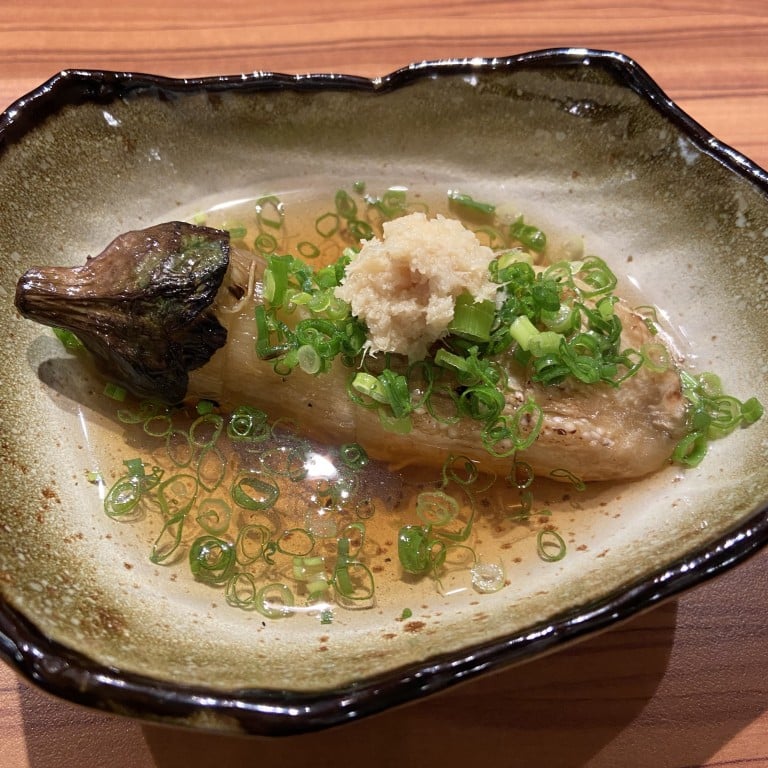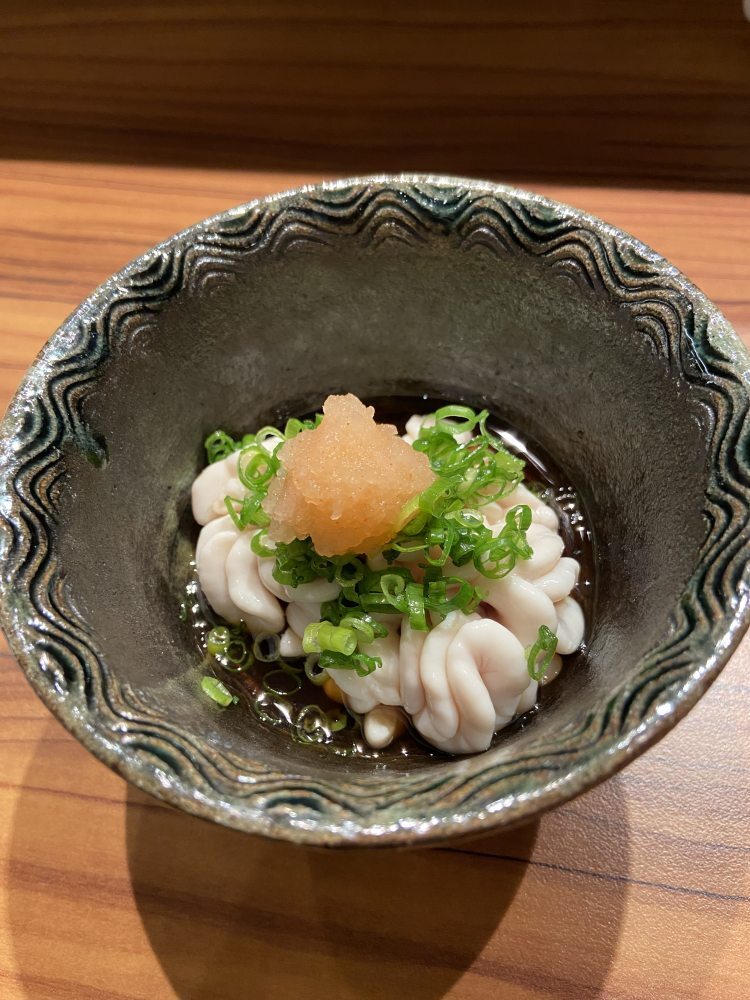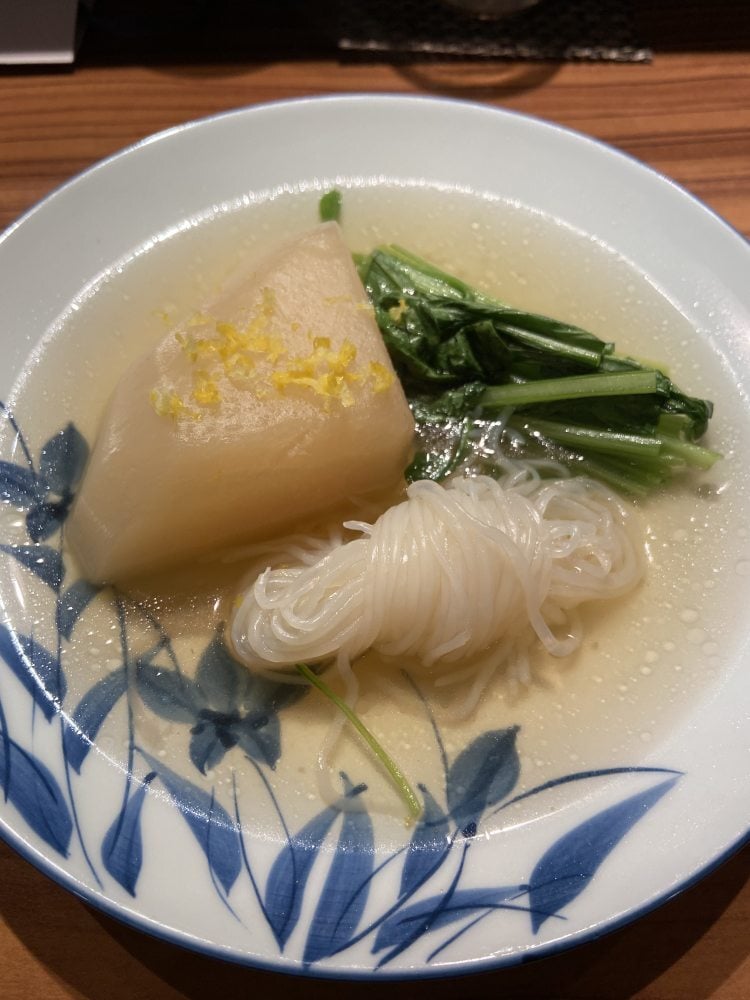
Review | New Hong Kong restaurant review: Kyoto-Oden Masa – Japanese cold-weather food at its best, with a broth to die for
- Winter makes us think of warming food, and Japanese oden – simmered dishes with a distinctive broth – are a perfect match
- Favourites at Kyoto-Oden Masa were cabbage rolls, the eggplant starter and stuffed tofu pouch with mochi
In Japan, oden is cold-weather food. I’ve eaten it in an oden-only establishment in Osaka that’s been around for more than 175 years, and in 7-Elevens throughout Japan, all in weather so cold you can see your breath.
In Hong Kong, we settled for 19 degrees Celsius (66 degrees Fahrenheit) when we visited the Kyoto-Oden Masa. This new restaurant is already creating a buzz among lovers of Japanese food in search of something different from all the sushi-yas that have been opening.
There are only five seats at the counter, plus three tables that seat four each. My party of three were the only non-Japanese speakers.
We ordered a few small dishes before starting on the oden. Shirako (cod milt, HK$98) came in a clear ponzu sauce, and was firmer and less creamy than we’ve tasted before, but very refreshing. House-made assorted fishcakes (four types for HK$158) had distinctive flavours that included corn and red pickled ginger, although next time we’ll try the fish cakes as oden. Our favourite starter was the grilled eggplant (HK$58) which was cool and light.


The broth is the most important part of oden, because that’s what all the ingredients are simmered in. Here, it was superb – clear and delicate, but it was distinctive enough that we could taste it in the ingredients.
The chef did a great job at setting the pace of the meal, serving the lighter ingredients first, before progressing to the heavier ones.
Hong Kong restaurants Aqua, Hutong are moving – here’s what will replace them
First up was Japanese shogoin turnip (HK$38 each) with yam konjac (HK$31) and mibuna greens (HK$38). The turnip was sweet and soft, and the chef grated some yuzu zest over it, which lifted the flavours. The yam konjac – in the shape of a bundle of thin noodles, had a gentle crunch, and the mibuna had a mild bitterness.
Fragile sheets of yuba (fresh tofu skin, HK$48) were paired with heavier taro (HK$45) in the next dish. Our waitress had recommended the innocuous sounding cabbage rolls (HK$68) which we loved. These are not dense, heavy Eastern European cabbage rolls. The cabbage was wrapped around a light but flavourful filling of minced chicken, before being poached in the broth. Delicious.
Our final dish was the stuffed tofu pouch with mochi (HK$42). It looked unassuming, in various shades of tan, but when we picked it up with our chopsticks we could feel how delicate it was. Knowing how molten-hot mochi can be, we took a small bite through the tofu skin and carefully sucked out the almost liquid interior before eating the remainder. It was just fantastic.
Kyoto-Oden Masa, shop 1103, 11/F United Success Commercial Centre, 508 Jaffe Road, Causeway Bay, tel: 2891 1530.

